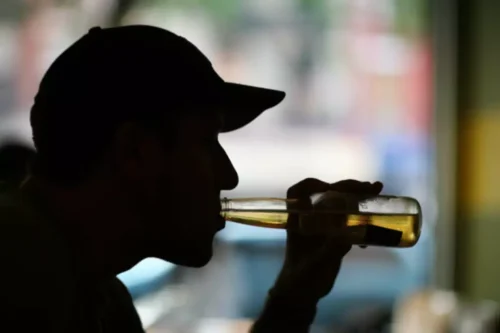
It is also possible to experience seizures as a result of alcohol withdrawal. This can happen after someone who has misused alcohol for a long time stops consuming it. In some cases, excessive alcohol consumption may lead people to miss meals or medication, which can also make seizures more likely in people with epilepsy. Heavy drinking, particularly withdrawal from heavy drinking, may trigger seizures in those with epilepsy.

Alcohol and Seizures
Alcohol withdrawal is a potentially serious complication of alcohol use disorder. It’s important to get medical help even if you have mild symptoms of withdrawal, as it’s difficult are alcohol withdrawal seizures dangerous to predict in the beginning how much worse the symptoms could get. It affects about 50% of people with alcohol use disorder who stop or significantly decrease their alcohol intake.

Drugs & Supplements
We have strict sourcing guidelines and only link to reputable media sites, academic research institutions and, whenever possible, medically peer reviewed studies. Addiction Resource aims to provide only the most current, accurate information in regards to addiction and addiction treatment, which means we only reference the most credible sources available. Once the person becomes conscious, they are likely to be extremely confused, tired, and sore. The tonic phase is followed by the clonic phase in which the arms and legs jerk rhythmically and rapidly. This typically involves bending and straightening of the major joints (elbows, hips, and knees).
When Do Alcohol Seizures Occur? Recognizing and Managing the Risks
- For some people, drinking alcohol can mean they get less sleep or forget to take their epilepsy medicine.
- The purpose of this review was to synthesize published evidence on the treatment of alcohol withdrawal syndrome in the ED.
- Should symptoms worsen, patients and their support person should be instructed to present to the emergency department for evaluation and further treatment.
Your CNS must work harder to overcome the depressant effects of alcohol to keep your body functioning. Each of these symptoms can increase in intensity depending on the severity of the withdrawal. Inclusion and exclusion criteria, age, sex, ethnicity, alcohol withdrawal severity at presentation, method of determining alcohol withdrawal, comorbidities, number of participants in main analysis, losses to follow-up. In this rapid review, we adapted traditional systematic review methods to generate evidence within an accelerated time frame [21,22,23]. Rapid reviews are a pragmatic and resource-efficient approach to knowledge synthesis that remains scientific, transparent and reproducible [24].
What is the treatment for alcohol withdrawal?
A study by The Recovery Village found heavy drinkers were 45% more likely than light or moderate drinkers to experience seizures during withdrawal and 73% more likely to have had a seizure in general. In the outpatient setting, mild alcohol withdrawal syndrome can be treated using a tapering regimen of either benzodiazepines or gabapentin administered with the assistance of a support person. Proposed regiments include fixed dosing with as-needed doses available. Should symptoms worsen, patients and their support person should be instructed to present to the emergency department for evaluation and further treatment.

Alcohol-related seizures in people without epilepsy

Our review supports the use of benzodiazepines as first-line treatment of severe alcohol withdrawal in the ED. However, our review of evidence from interventional studies performed in the ED does not provide sufficient evidence to recommend routine use of phenobarbital or propofol in ED treatment algorithms. Although one recent literature review summarized evidence for ED withdrawal management, the authors extrapolated recommendations from guidelines for non-ED settings [19]. Another recent literature review also included evidence from non-ED studies [20]. Benzodiazepines are also central nervous system depressants that work in the brain the same way as alcohol. They can ease many alcohol withdrawal symptoms, allowing your body to adjust slowly.
- American Addiction Centers (AAC) is committed to delivering original, truthful, accurate, unbiased, and medically current information.
- However, alcohol, along with other depressants, is among the most dangerous substances during the withdrawal phase, especially if you quit cold turkey.
- Phenytoin does not have evidence of effectiveness at preventing alcohol withdrawal seizures in the ED.
- It affects about 50% of people with alcohol use disorder who stop or significantly decrease their alcohol intake.
- Both of these neurotransmitters play a role in managing brain activity and relaxation.
Study selection
Our search strategy utilized focused search terms in the most highly relevant databases to prioritize yielding citations with greatest relevance. Addiction can make it even harder to stop using alcohol, and it often involves or leads to chemical dependence. Additionally, if a seizure cannot be stopped or multiple seizures occur in rapid succession, it could result in permanent injury or prove fatal. This section answers some frequently asked questions about alcohol and seizures. Alcohol works as a depressant on the central nervous system and alters the function of gamma-aminobutyric acid (GABA) receptors. Inhibitory neurotransmitters prevent certain chemical messages from passing on.